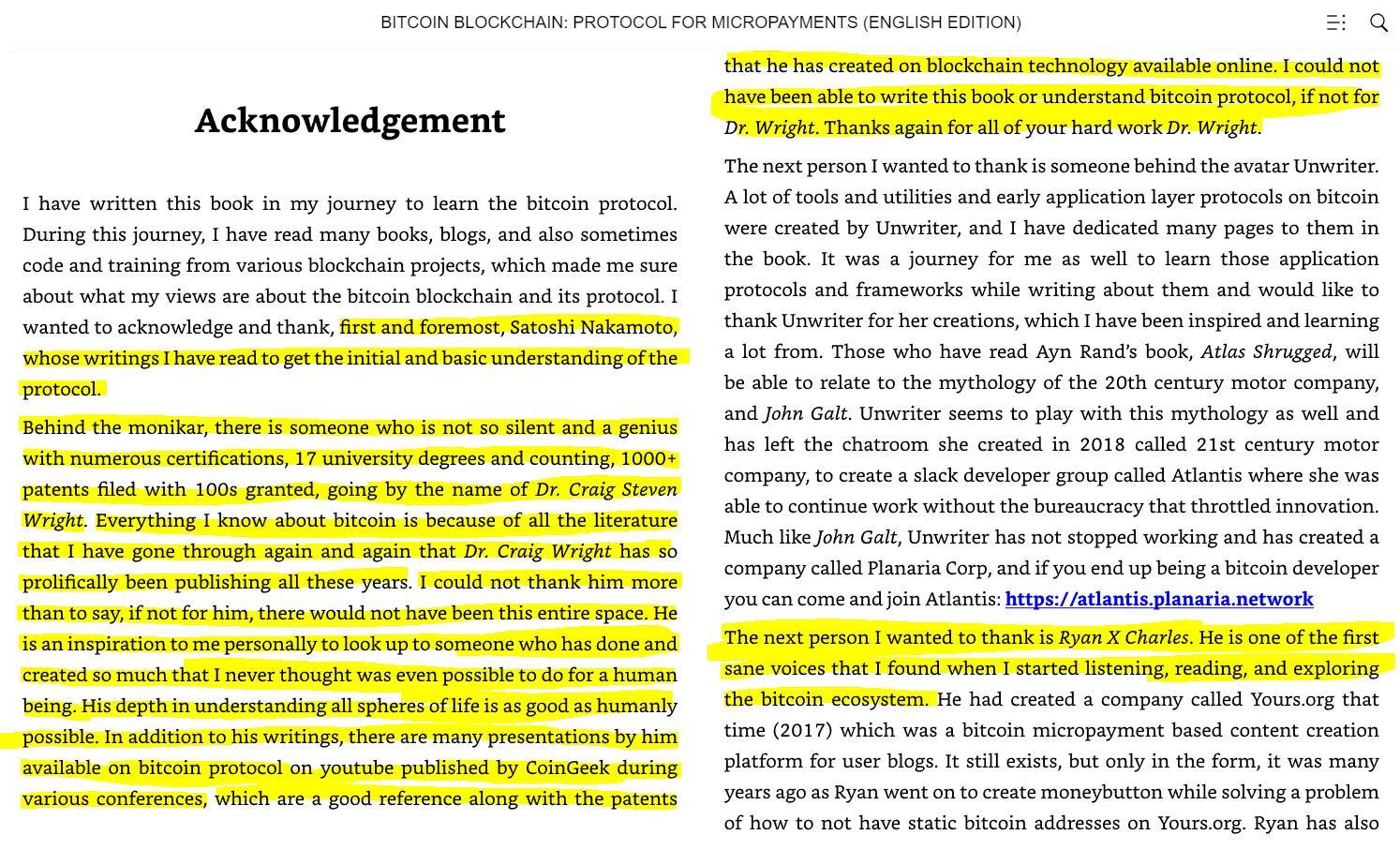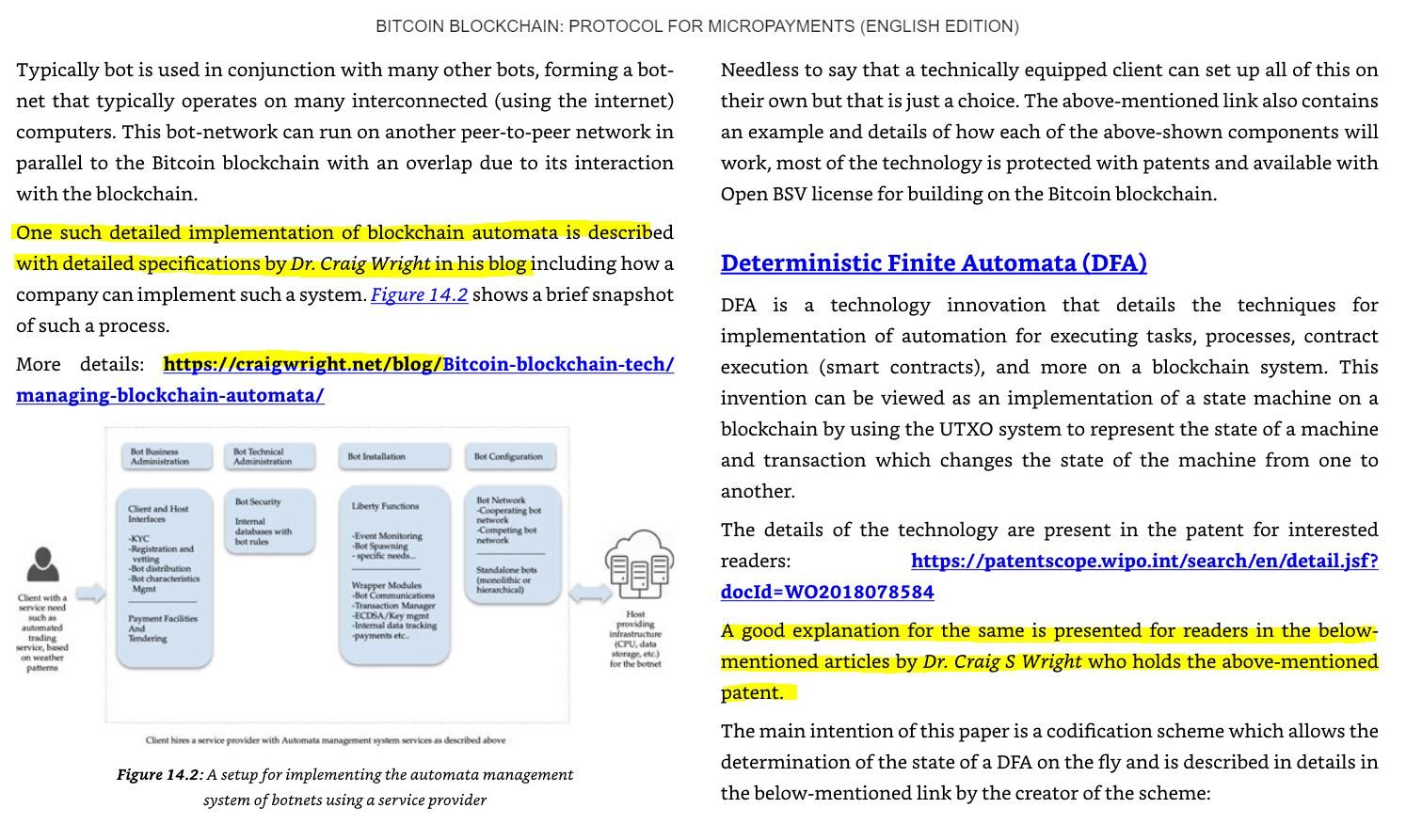Molde University College recently issued a statement addressing the curriculum of its IBE500 Blockchain Application Programming course, particularly the discussions surrounding the reference to Craig Wright as Satoshi Nakamoto. This response comes amid scrutiny over course materials that seemingly align with Wright’s claims, which are contrary to a High Court of London ruling.
The statement by the Information & Communication departments at Molde University College seems to emphasize a neutral stance on the disputed identity of Bitcoin’s creator, promoting academic freedom and the value of knowledge. They assert the curriculum does not endorse any specific individual related to blockchain technologies, yet excerpts from course materials suggest a different narrative.




Highlighted sections from the beginning of a textbook used in the course point to a substantial acknowledgment of Dr. Craig Wright, citing his literature and patents as foundational to understanding Bitcoin and blockchain technology. These acknowledgments extend to thanking him for his contributions to the field, positioning him as an influential figure essential to the course’s learning objectives.
Critically, the course material’s acknowledgment section and citations appear to allegedly conflict with the university’s claim of non-endorsement. This alleged discrepancy raises questions about the curriculum’s impartiality and adherence to the institution’s stated ethical guidelines, especially given the High Court’s ruling on the matter.
Moreover, the alleged relationship between Calvin Ayre/nChain funded UNISOT and Stephan Nilsson (@BitCoinDevotee), as well as their connections to academics responsible for the course at the university, further complicates the narrative. Such associations may suggest potential bias or influence within the course content, which may not align with the college’s public stance on promoting diverse perspectives.
The statement from Molde University College emphasizes a commitment to excellence and ethical standards in teaching and research. However, the reliance on materials that extensively reference Wright in light of the High Court’s ruling and the connections to prominent BSV proponents necessitates a critical examination of the course’s alignment with these values.
However, while the college’s statement aims to clarify its position, the course materials highlight a need for transparency and consistency in representing blockchain technology and its pioneers. As the debate continues, the cryptocurrency community and the academics alike will look towards Molde University College for further clarification and potential course adjustments to reflect a balanced and unbiased educational approach.
Reaction
The recent revelations about the curriculum for Molde University College’s “Programming Blockchain Applications” course have sparked a robust debate within the crypto community. The inclusion of material that prominently features Dr. Craig Wright as an important figure in Bitcoin’s history and technology has drawn scrutiny, particularly in light of legal decisions questioning the validity of such claims. Hodlonaut points to an apparent alignment between the course content and Wright’s narrative, which some see as incongruent with the academic objectivity expected from higher education institutions.
This, coupled with reported links between the course’s academics and entities like UNISOT and nChain, adds a layer of complexity to the discourse, suggesting potential conflicts of interest that could influence the educational material. The university’s curriculum choices, especially with references to the contentious identity of Satoshi Nakamoto, have raised critical concerns about the integrity and impartiality of blockchain education at the institution.
The statement from Molde University comes
About Høgskolen i Molde
Høgskolen i Molde, also known as Molde University College, is a specialized university institution in Norway renowned for its focus on logistics and sports sciences. With its picturesque setting in the town of Molde, known as the ‘City of Roses,’ the institution offers a range of undergraduate, graduate, and doctoral programs, blending academic rigor with practical skills and industry collaboration.
The college prides itself on its intimate campus environment, fostering close connections between faculty and students, and is dedicated to innovation and excellence in research, particularly in areas that support the region’s economic and social development.
Author Profile

- Lucy Walker covers finance, health and beauty since 2014. She has been writing for various online publications.
Latest entries
- April 26, 2024CryptoBitcoin Dev Challenges Criminal Haven Claim on Whirlpool’s Design
- April 25, 2024Global EconomicsIs Brussels Killing Innovation & the European Economy?
- April 23, 2024BitcoinBitcoin ETFs Enter Top 20 ETFs of All Time
- April 22, 2024BitcoinBitcoin’s New Epoch: A Critical Reflection by Juan Galt



